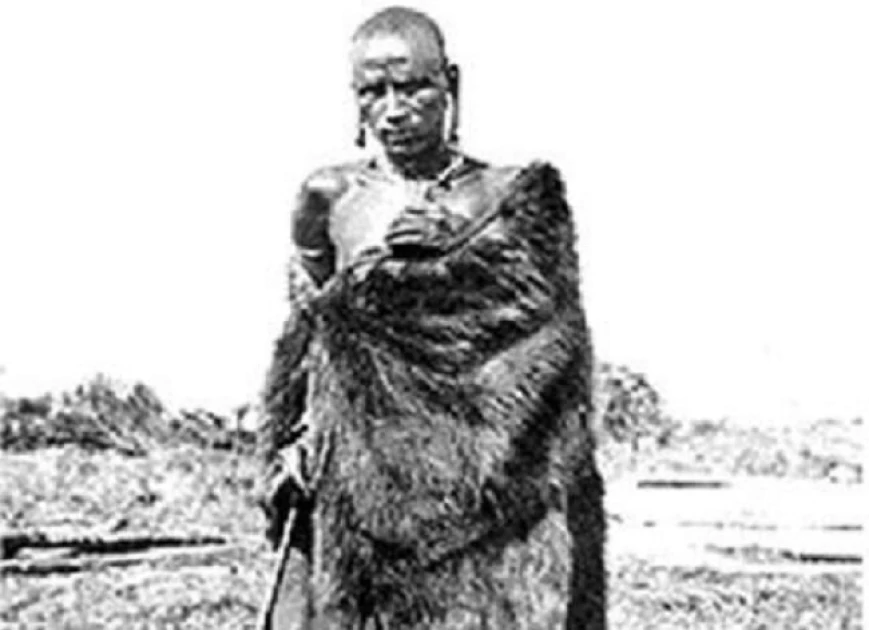70 years later, Nandi leaders still demanding for Koitalel Arap Samoei’s Head from British Gov't


Audio By Vocalize
Barely
a day after the death of Queen
Elizabeth II, members
of the Nandi community have reiterated their 2016 stance to have the UK
government return the head of freedom fighter Koitalel Arap Samoei, which they
claim was taken as a war trophy during the battle for Kenya's independence.
According to Nandi County legal
officer Geoge Tarus, despite the monarch's sudden passing on Thursday, Kenya's
struggle for independence remains fresh in the memory of Kenyans and more so
the Nandi community as such, at the very least, the UK government should return
Koitalel's head and offer a public apology for invading Kenya.
“We appreciate the relationship that has
been between Queen Elizabeth II and Kenya. She actually became queen when she
was right here in Kenya. Kenya has a long history and affections for her but we
cannot forget what happened historically between Britain and Kenya including
Colonial resistance by Koitalel Arap Samoei and the fight for
independence," Taurus told Citizen Digital.
"Contemporarily we acknowledge
the strong ties with UK only that we want them to issue a public apology to the
Nandi people. We also want them to return the head of Koitalel Arap Samoei.
Maybe it is now the right time to do that especially as we seek to strengthen
ties moving forward."
Koitalel, who led an eleven-year
resistance movement against the building of the Uganda Railway through the
Nandi area, was on October 19, 1905 shot dead by British Col. Richard
Meinertzhagen.
Meinertzhagen had invited Koitalel to
negotiate a truce, using that ruse to lure the Nandi
leader for the fatal ambush.
The colonialists decapitated the body
and took the head to London.
The Nandi leader’s symbolic grave was
built at the Nandi Hills Town, where his headless body was found. The grave is
designed with marble and it shows that his head is missing.
In 2016, Tarus observed that Nandi
people went through a difficult time under the reign of British colonialists,
and that the British government should apologise to the people, and compensate
them.
Tarus claimed that as a result of
being colonised, Nandi residents lost huge tracts of fertile land to the
British lords, which they are yet to recover.
Tarus’ revelation came after the
British government in June, 2013 announced that it would pay about $30 million
(Ksh.3 billion) in compensation to more than 5,000 Kenyans whose families were
affected by Britain’s authoritarian rule.
Former British Government Foreign
Secretary William Hague in June 6, 2013 remarkably admitted that imperial
forces tortured Kenyans fighting against British rule in the 1950s.
About 12,000 Africans died in the
pre-independence revolt.
“The British government recognizes
that Kenyans were subject to torture and other forms of ill treatment at the
hands of the colonial administration,” Hague told Parliament then while reading
from a prepared statement.
“The British government sincerely
regrets that these abuses took place and they marred Kenya’s progress toward
independence.”
He said the compensation package totalled
£19.9 million (Ksh.2.5 billion) to 5,228 claimants.
Hague’s announcement came after the
British government settled out of court with lawyers representing the claimants
following a landmark court ruling in October, 2012.
In that ruling,
three Kenyan torture victims won the right to sue the British authorities after
legal battles starting in 2009.
The claimants accused British forces
of beating, torturing, raping and even castrating people as they sought to put
down a revolt begun by the Mau Mau, an anticolonial group that sought to end
British domination.
Martyn Day, a lawyer for the Kenyan claimants, said
he hoped that Mr. Hague’s statement would prove to be “the final resolution of
this legal battle that has been going on for so many years.”


Leave a Comment